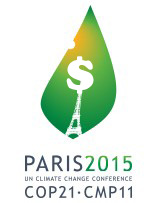News broke that a “historic” deal had been stuck in Paris by the largest gathering of states in human history at the COP21 United Nations conference meant to address climate change. Yet despite the self-congratulation, adulation from the lame-stream press, and over-glorified silliness, activists and scientists were adamant that the whole affair was simply a gigantic ruse, with Friends of the Earth International (FEI) calling the agreement “a sham”.
“Rich countries have moved the goal posts so far that we are left with a sham of a deal in Paris. Through piecemeal pledges and bullying tactics, rich countries have pushed through a very bad deal,” said Sara Shaw, Friends of the Earth International climate justice and energy coordinator. Dipti Bhatnagar, Friends of the Earth International climate justice and energy coordinator, said “Vulnerable and affected people deserve better than this failed agreement; they are the ones who feel the worst impacts of our politicians’ failure to take tough enough action.”
At the core of the deal currently being touted as a success are the following policy goals:
- Limit global temperature rise to 2*C (3.6*F), if not 1.5*C
- Limit greenhouse gas emissions beginning somewhere between 2050 and 2100
- Review of each state’s contribution every five years
- Rich countries will finance adaptation to climate change and transfer to a renewable energy grid in poorer ones
Yet as Amy Goodman of Democracy Now! reported all week from the City of Love, the agreement has always been lacking several key elements. It fails to protect women and indigenous peoples and does not include a mechanism allowing for states to claim damages from the large polluter nations and corporations that have already affected millions of lives with climate change. Consider what Dr. Bill Nye told The Huffington Post at the beginning of the month about how climate change had caused the war in Syria:
The news is filled weekly with stories of natural disasters, exacerbated by climate change, that cause cataclysmic events throughout the world. And when one considers that it has recently been revealed that the Exxon oil company knew in the 1970s that climate change existed and was caused by the burning of fossil fuels, one can easily see a clear-cut case of industrial malfeasance that resulted in catastrophic consequences for the population, not unlike the case of tobacco companies, especially since both the petroleum and tobacco companies intentionally misled the public about the harmful affects of their products. This would create the opportunity for governments throughout the world to file massive class-action lawsuits against the oil companies and even perhaps the nation states that aided and abetted this cover-up. Furthermore, as reported on Democracy Now! when Goodman interviewed Dr. Kevin Anderson, things are far worse than the public believes.
Well, those of us who look at the—running between the science and then translating that into what that means for policymakers, what we are afraid of doing is putting forward analysis that questions the sort of economic paradigm, the economic way that we run society today. So, we think—actually, we don’t question that. So what we do is we fine-tune our analysis so it fits within a sort of a—the political and economic framing of society, the current political and economic framing. So we don’t really say that—actually, our science now asks fundamental questions about this idea of economic growth in the short term, and we’re very reluctant to say that. In fact, the funding bodies often are reluctant to fund research that raises those questions. So the whole setup, not just the scientists, the research community around it that funds the research, the journalists, events like this, we’re all being—we’re all deliberately being slightly sort of self-delusional. We all know the situation is much more severe than we’re prepared to voice openly. And we all know this. So it is a—this is a collective sort of façade, a mask that we have. [Emphasis added]
How bad is it? Consider this recent article in Science Daily. A rise of 6*C in ocean temperatures, something that could happen by the end of the century, would cause phytoplankton to stop photosynthesizing. These phytoplankton are responsible for 2/3 of the planet’s oxygen, which would cause the planet’s air to have a massive drop in oxygen content, resulting in a massive die-off of animals and humans, something not dreamed of seriously perhaps since John of Patmos delivered his Book of Revelations.
Now consider also recent developments regarding the Trans-Pacific Partnership. The deal, revealed recently to massive outrage, would severely impact the ability to file class-action lawsuits against corporations and entities over consumer safety issues. Poorer nations, especially those island nations in the Pacific Ocean that face massive land loss within the next fifty years, should be able to sue for damages. Yet instead, the COP21 agreement foists onto these nations proposals for a neoliberal loan package that will entail greater hegemony for capital, parasitical debt resulting in cuts to vital social services, and no protection for those most impacted by climate change and who find themselves on the front lines of the battle. It as if an arsonist were to light your house on fire and then offer to sell you a garden hose to put the blaze out with a caveat that you become their indentured servant for an unspecified amount of time!
To quote the Bard at this point seems almost cliche. Yet I cannot help but recall the words of Cassius:
Why, man, he doth bestride the narrow world
Like a Colossus, and we petty men
Walk under his huge legs and peep about
To find ourselves dishonorable graves.
Men at some time are masters of their fates:
The fault, dear Brutus, is not in our stars,
But in ourselves



